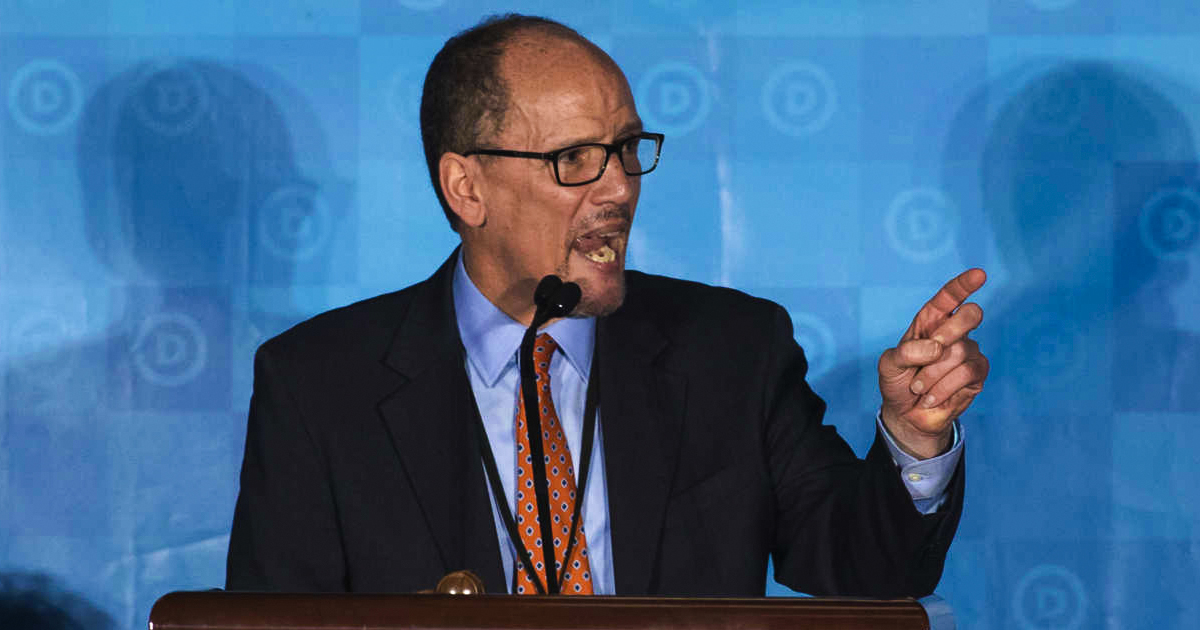Let me start this story by being perfectly clear, President Trump must answer for his claims into government wiretapping and I am not defending the President’s wild attacks on the media or the previous administration.
Terrible! Just found out that Obama had my “wires tapped” in Trump Tower just before the victory. Nothing found. This is McCarthyism!
— Donald J. Trump (@realDonaldTrump) March 4, 2017
But the fact that no one seems to have clear answers as to what actually transpired simply highlights the fact that the country’s spy agencies continue to operate without much supervision, especially under President Obama and Eric Holder’s Department of Justice. Over the last several years, it has come to light that the NSA, CIA, and FBI continue to operate without oversight and work to push their own political agenda with shadowy investigations.
In speaking about Trump’s Twitter accusation, the 30-year architect of the NSA’s surveillance program and noted agency whistleblower William Binney said that wiretapping and spying on American citizens for political purposes is nothing new to the government. While Binney made the statements to Breitbart, an unreliable news source, Binney is a well-noted NSA critic and a reliable source when it comes to critiquing the agency’s actions. Binney says that Reagan’s Cold War Executive Order 12333, an order that granted government agencies widespread power to spy on “United States persons” for security purposes, has been misused by the Department of Justice to collect massive amounts of data on virtually anyone.
“[The] FBI would only ask for a warrant if they wanted to be able to take it into court at some point given they have something meaningful as evidence.”
In the wake of the 9/11 attacks, the NSA worked to collect bulk data and the CIA and FBI had unrestricted access to that data. Several whistleblowers stepped forward, like Binney, Pat Eddington, and Thomas Drake, bringing stark accusations of a dysfunctional attempt to violate the privacy of all Americans. According to them, top officials presented the NSA with an option to streamline data and mask some private information regarding American citizens. This would make sorting intelligence easier and would erase many privacy concerns. The NSA instead decided to expand the types of data that they would collect. In 2007, the Bush administration raided the homes of whistleblowers, brandishing charges of espionage when former officials threatened to go to the press.
Perhaps the most shocking shift with the spook agencies came when they worked directly against the press, threatening First Amendment protections. In 2011, the Department of Justice under Eric Holder secretly gained access to Fox News reporter James Rosen’s email over articles regarding North Korea’s military. No charges were ever filed against Rosen, but the warrant claimed that Rosen was “an aider, abettor and/or co-conspirator.” In 2013, the same DOJ seized the Associated Press‘ phone records, without ever directing subpoenas to the AP, while the AP reported on a CIA operation to foil a Yemeni man’s attempt to bomb a commercial flight. The DOJ showed a surprising amount of force against unfavorable members of the press.
Then, during the 2016 campaign, many Obama-era CIA, FBI, and NSA officials saw Trump as a threat to their aggressive actions against American citizens. It isn’t unrealistic to believe that they would work against then-candidate Trump.
With Trump’s refusal of intelligence briefings and the NSA’s critique of his ties to Russia, it is easy to see that the spy agencies found an early enemy in the campaigning Donald Trump. Hillary Clinton’s campaign website even highlighted interviews with intelligence officials that slammed Trump over the DNC leaks and then tried to somehow tie that to fighting ISIS.
Binney has also gone on the record to say that the attacks on Trump may be a ploy by the intelligence community to bolster their own coffers. Again, while Trump must satisfy any investigation into his Russian ties, it does appear that the NSA is interested in creating a new Cold War. By questioning the NSA’s motives, Trump put their funding in danger. So it is not out of the question that the agency would push a narrative that creates a greater necessity for their spying programs. Binney said,
“[C]ertainly the military intelligence complex fosters that because that means for a ‘new Cold War’ trillions of dollars going into the coffers of those people, they would certainly be advocates for this thing. There is a lot of vested interest to keep this kind of thing going.”
While we should hold Trump accountable for his accusations, we should also hold the intelligence community accountable for their own actions against political enemies and call for increased oversight over their draconian tactics. Under President Obama, the NSA, CIA, and FBI indeed used their power to work against political enemies and unfavorable press. Those actions should continue to be investigated and exposed.


